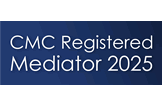
All About People
Need help to resolve your business, personal or employee conflicts & disputes?
Stay up to date with our latest news and workshops.
If you are reading this, you are likely to be an HR professional, manager or advisor who is responsible for dealing with conflict that has arisen.
Conflict management is not just a process to follow. It is essential that each person is provided with a safe, confidential space with which to explore issues and tell you what their problems are.
It is important to remain neutral throughout the entire process and not impart your own views or suggestions for moving forward. Mediators are skilled in facilitating discussion and asking the right questions to allow each person to talk, as well as build trust and confidence in the mediation process. If you are overseeing the exploration of any issues and helping people to find solutions, here are our top tips:
As a professional managing conflict, it is important to promote open discussion and support those involved with their needs. These may be very different to what you may envisage as their best interests or a good outcome.
As an adviser your primary duty is to listen and ensure there is enough information available for them to make an informed decision as to their next steps. Conflict can be resolved with the right support and willingness to move forward. However, parties should never feel under pressure to agree to terms which are not acceptable to them.
As a professional, it is vital that you remain open to options and help those involved navigate through the process. The obvious solutions may not be the right one in the circumstances and often with mediation, parties agree outcomes which are outside the bounds of the court or other formal processes. The flexibility and party-empowerment which is afforded to parties through mediation and conflict resolution provide an organic foundation for pragmatic decision making, which should be encouraged.
Whilst we aspire to have all the answers as professionals, there is no single piece of advice you can provide to someone going through conflict. We suggest that you follow the four main principles mentioned above, namely to:
Mediation is a powerful tool in which the people involved are empowered to decide outcomes which work for them. They are afforded more flexibility and freedom to agree realistic ways forward than with other methods of dispute resolution.
Mediation is also a confidential process whereby parties can explore issues and consider solutions away from the public domain. It is ideal for those who are looking to maintain their reputation and not be under the scrutiny of third parties.
One of the core traits of mediation is the concept of looking forward rather than reviewing evidence. Parties are encouraged to think about how they want to resolve issues as opposed to arguing about the strength of evidence. This is the perfect platform where there is a continuing relationship envisaged.
Mediation is more cost effective and time efficient than other methods of dispute resolution. This form of resolution can be flexible to the needs of those involved and for most matters that settle, they do so within a day. Mediation is comparatively less expensive than engaging with litigation, but the overall cost will depend on the use of other professionals and services as part of the process.
If the conflict you are dealing with has been ongoing for a while, the individuals are not fully engaging or there appears to be no progress, we suggest contacting us for advice and guidance as to next steps.

Strategic Advice and Guidance for you and your organisation. Our accreditations:




Stay up to date with our latest news and workshops.